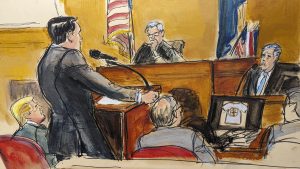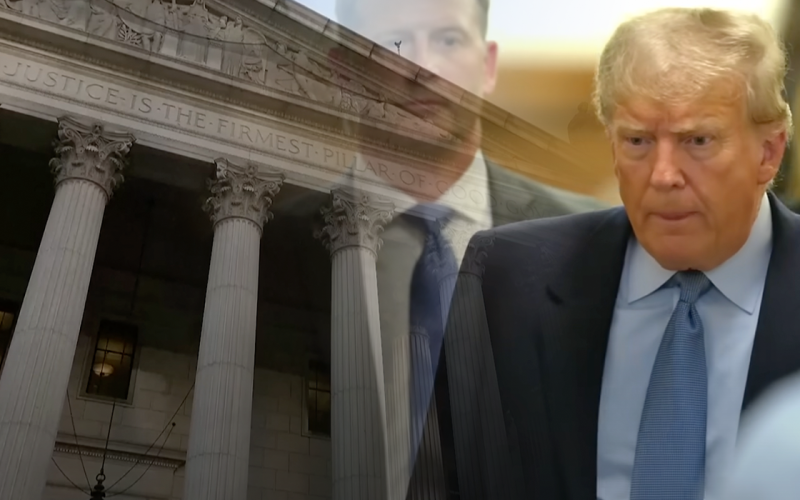The ongoing criminal trial of former President Donald Trump in New York has witnessed a compelling clash between Trump’s defense team and prosecutors, centered around the testimony of his estranged ex-fixer, Michael Cohen. Cohen’s allegations regarding hush money payments to adult film actress Stormy Daniels before the 2016 election have become a focal point of the proceedings, with legal experts weighing in on the credibility of his claims and their implications for Trump.
Cohen’s Testimony: A Key Narrative
Michael Cohen, once a close confidant of Trump, testified for the prosecution, alleging that Trump directed him to pay $130,000 to Daniels to maintain her silence about an alleged 2006 sexual encounter. Cohen further asserted that Trump greenlit a plan to manipulate records to conceal the transaction, implicating Trump directly in the scheme.
Defense Strategy: Discrediting Cohen
Trump’s defense team, led by lawyer Todd Blanche, embarked on a strategy to undermine Cohen’s credibility. They portrayed him as a vindictive turncoat seeking revenge against his former boss, thereby challenging the veracity of his testimony. The defense aimed to distance Trump from the specifics of the reimbursements to Cohen, suggesting that Trump was not directly involved in the transactions.
Prosecution’s Corroboration Efforts

While prosecutors faced challenges in fully corroborating Cohen’s account of his private conversations with Trump, they presented evidence indicating Trump’s awareness of the scheme. Legal experts, such as Professor Rebecca Roiphe of New York Law School, noted that prosecutors successfully portrayed Trump as a meticulous overseer of his business and financial affairs, implying his likely knowledge of the payments to Daniels.
Circumstantial Evidence and Trump’s Management Style
The prosecution highlighted Trump’s management style, as evidenced by his statements in books and other sources, indicating a hands-on approach to business operations. This circumstantial evidence, coupled with testimony and documentation, strengthened the prosecution’s narrative of Trump’s involvement in the hush money payments.
Legal Implications: From Misdemeanors to Felonies
Trump faces 34 felony counts related to falsifying business records, with prosecutors alleging that the altered records concealed violations of election and tax laws. By characterizing the payments to Cohen as unreported campaign contributions, the prosecution argues that Trump’s actions transcend misdemeanors, potentially leading to significant prison sentences if convicted.
Conclusion
As the trial unfolds, the clash between Trump’s defense and the prosecution over the credibility of Michael Cohen’s testimony underscores the high stakes and complexities involved. With legal experts dissecting the evidence presented thus far, the outcome of the trial will not only impact Trump’s personal fate but also carry broader implications for the intersection of politics, law, and accountability in the United States.










